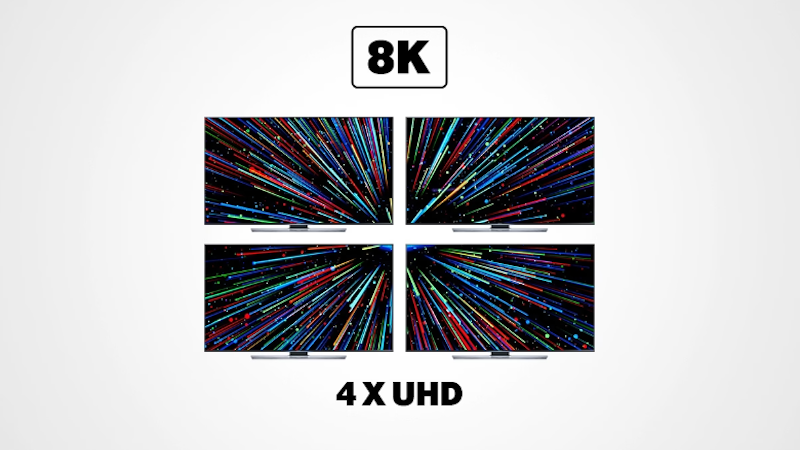According to the EU’s power-saving regulations, 8K TVs should actually disappear from the market. But now TV manufacturers have discovered a loophole to continue selling their luxury devices.
The way we consume content is constantly changing. About ten years ago, it was absolutely unbelievable that the internet connection gave content in 720p resolution. Now, 4K image resolution has become the norm.
For comparison: HD (720p) represents about 922,000 pixels. Full HD (1080p) has about two million and UHD (4K) even up to eight million. Nevertheless, for most of us the classic Full-HD should still be the standard.
While most TVs are already capable of 4K resolution – with statistics estimating sales of over 122 million sets – there is hardly any content for the format. After all, hand on heart, how many people opt for the biggest Netflix subscription to be able to watch just a few pieces of content in UHD?
8K TVs offer four times the resolution of 4K
Nevertheless, there is always room for improvement. Because after the 4K standard, TV manufacturers already developed the next evolutionary stage: 8K. An 8K TV displays more than 33 million pixels. Compared to 4K sets, the picture resolution is four times as high.
It should be no secret that such TVs are not exactly energy-saving. The more detailed content a screen can display, the higher the power consumption. This even went so far that the manufacturers of 8K TVs could no longer meet the efficiency regulations of the European Union.
8K: How manufacturers are getting around the EU’s power-saving regulations
The new regulations have been in force since 1 March 2023 and initially led to the assumption that many devices would disappear from the shelves. But Samsung, LG, Sony and Co. now have an idea how they can circumvent the new laws comparatively easily.
The magic word here is “eco-mode”. Because under certain circumstances, even the latest 8K devices meet the EU requirements. To do so, the manufacturers only have to set a mode with lower brightness. That is already enough for an EU label. Environmentalists can respect these specifications, TV enthusiasts can overwrite them comparatively easily.










